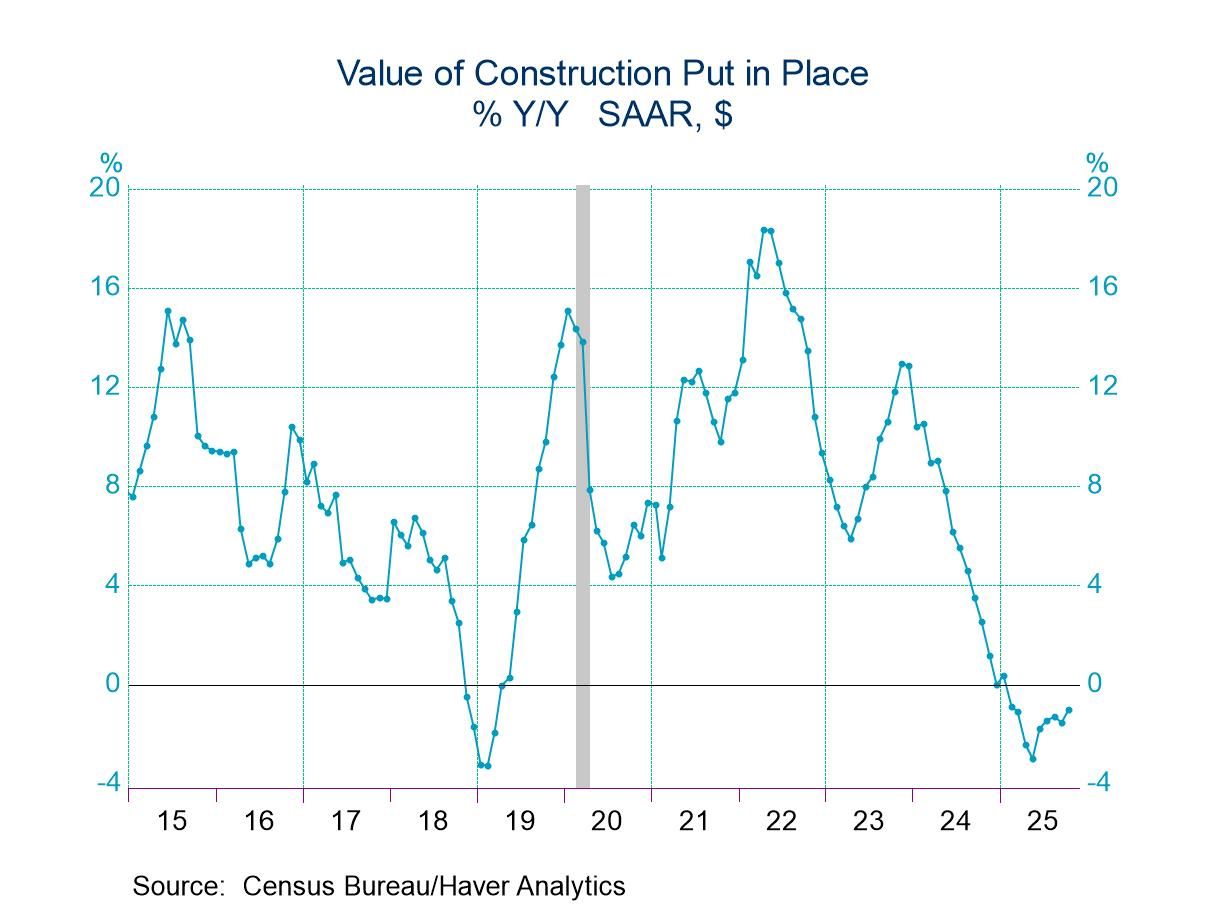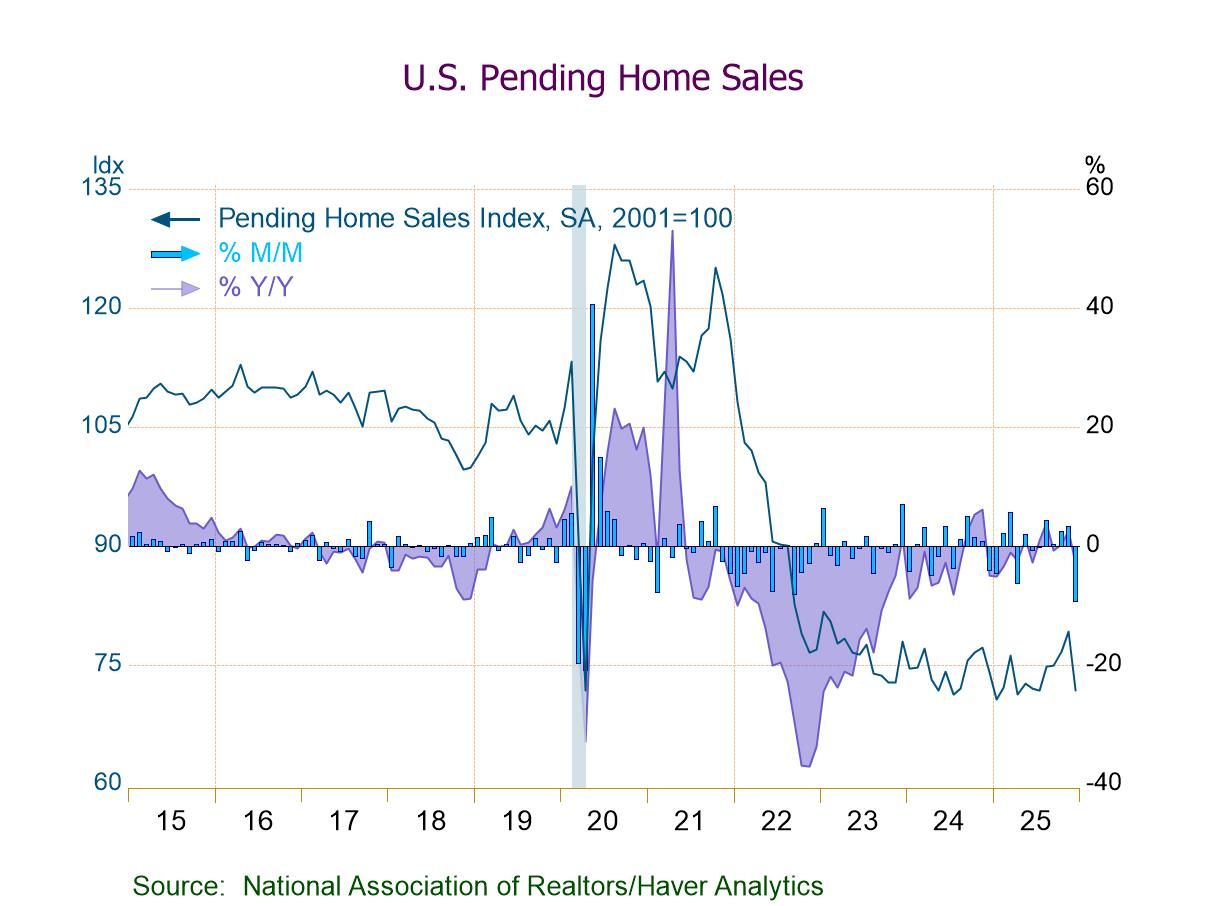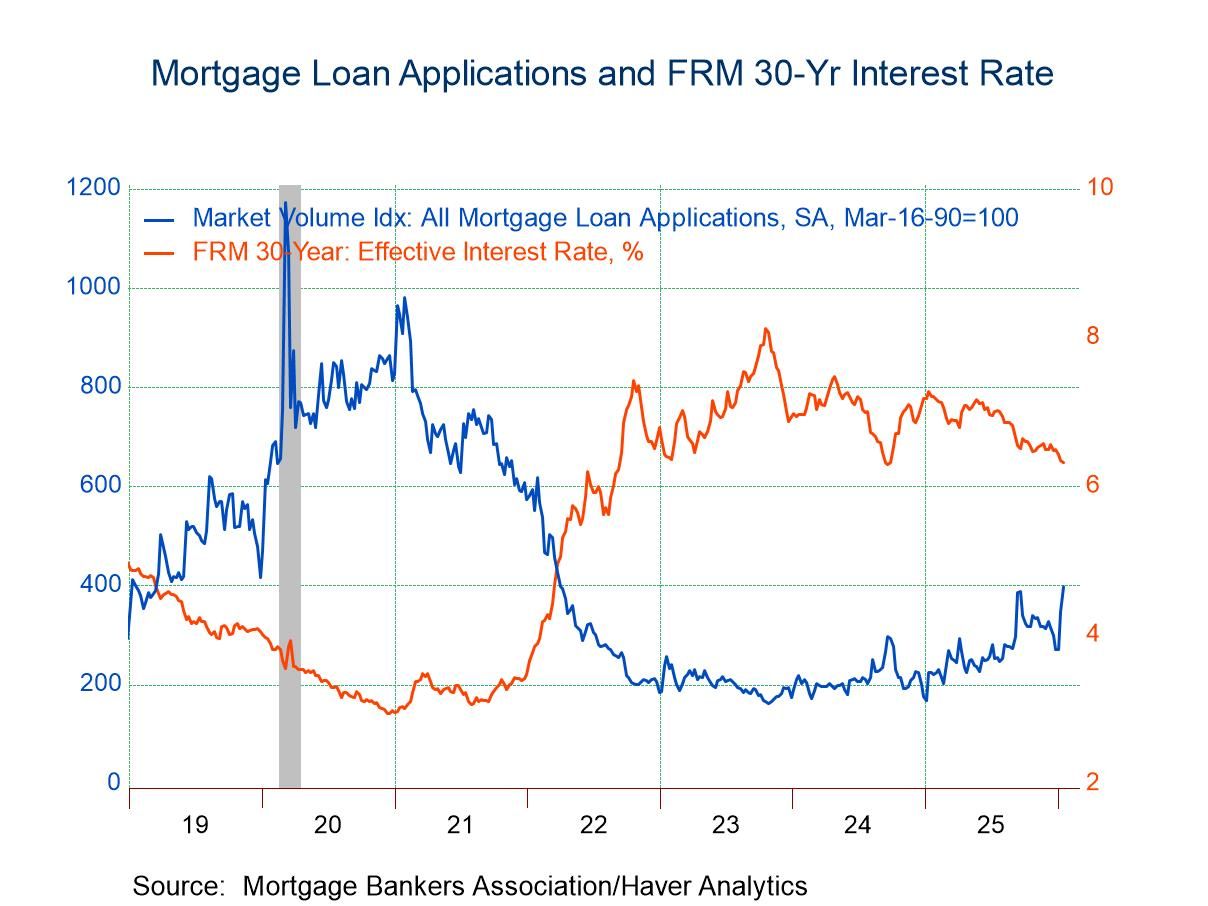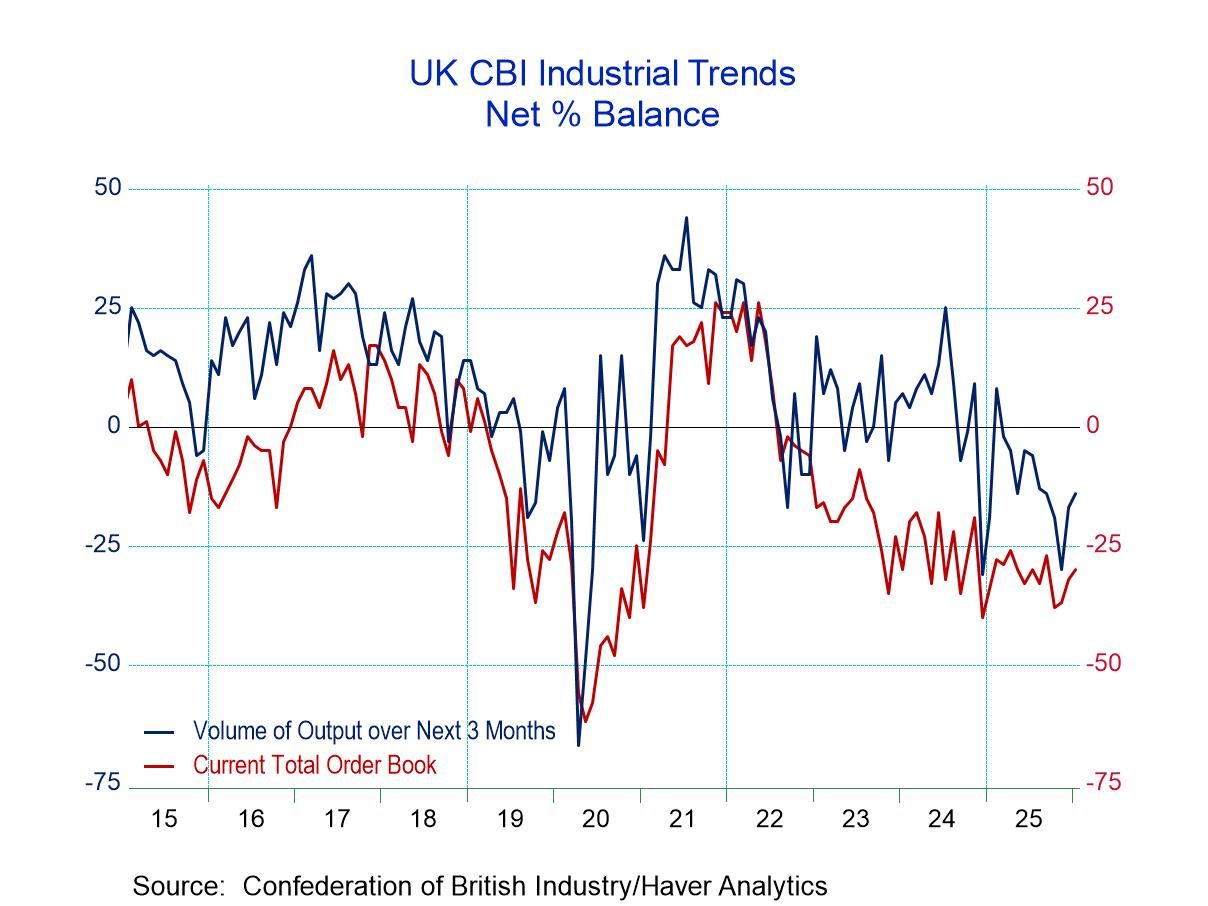 Global| Mar 04 2004
Global| Mar 04 2004Initial Jobless Insurance Claims Dip
by:Tom Moeller
|in:Economy in Brief
Summary
Initial claims for jobless insurance fell 7,000 (-2.0%) to 345,000 last week, again matching Consensus expectations. That reversed the prior week's rise (revised up slightly). During the last ten years there has been a 77% (negative) [...]
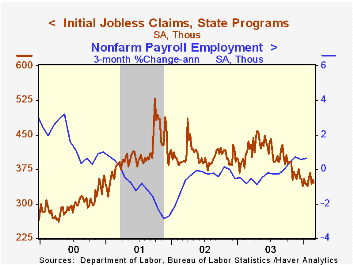
Initial claims for jobless insurance fell 7,000 (-2.0%) to 345,000 last week, again matching Consensus expectations. That reversed the prior week's rise (revised up slightly).
During the last ten years there has been a 77% (negative) correlation between the level of initial claims and the three-month change in non-farm payrolls.
The four-week moving average of initial claims fell to 352,250 (-13.8% y/y).
Continuing claims for unemployment insurance were unchanged from the prior week's level that was revised lower.
The insured rate of unemployment was unchanged at 2.4% and the prior week's level was revised down.
| Unemployment Insurance (000s) | 2/28/04 | 2/21/04 | Y/Y | 2003 | 2002 | 2001 |
|---|---|---|---|---|---|---|
| Initial Claims | 345.0 | 352.0 | -20.9% | 403 | 404 | 406 |
| Continuing Claims | -- | 3,091 | -10.9% | 3,535 | 3,575 | 3,022 |
by Tom Moeller March 4, 2004
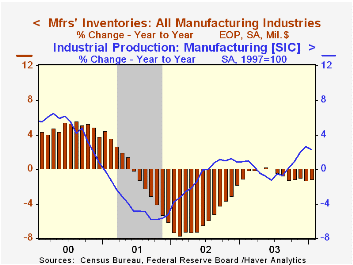
Factory inventories rose in January for the third month in four. The 0.2% m/m increase was hardly strong but recent monthly gains pulled the y/y change in inventories to -1.1% versus rates of decline exceeding 7% two years ago.
The swing to inventory accumulation from decumulation necessitated increases in factory output.
Factory orders fell 0.5% m/m reflecting a sharp 2.3% decline in durable goods orders. that was revised from the advance report of a 1.8% decline. Orders for nondurable goods rose 1.6% as petroleum orders (which equal shipments) jumped 5.1%.
Factory shipments rose 0.5% but gains amongst industries were limited.
| Factory Survey (NAICS) | Jan | Dec | Y/Y | 2003 | 2002 | 2001 |
|---|---|---|---|---|---|---|
| Inventories | 0.2% | 0.1% | -1.1% | -1.3% | -1.8% | -6.1% |
| New Orders | -0.5% | 1.8% | 6.5% | 3.7% | -1.9% | -6.7% |
| Shipments | 0.5% | 2.1% | 6.2% | 2.6% | -2.0% | -5.4% |
| Unfilled Orders | -0.1% | 0.5% | 4.5% | 4.2% | -6.1% | -5.9% |
by Tom Moeller March 4, 2004
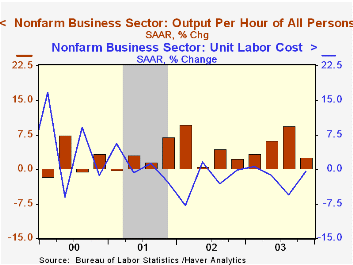
Non-farm labor productivity grew 2.6% last quarter, little changed from the initial estimate of 2.7% growth. Consensus expectations had been for 2.6% growth.
Hours worked by all persons (employment times hours) were little revised, up 1.5% (-0.3% y/y) and output growth also was little revised at 4.1% (5.1% y/y) versus 10.4% growth in 3Q.
Unit labor costs fell 0.4% versus the initial estimate of a 1.3% decline. The back-to-back annual cost declines in 2003 and 2002 were a record. Compensation growth in 4Q was revised up.
Manufacturing sector productivity growth of 4.8% (5.2% y/y) was unrevised. Unit labor costs in the factory sector fell 2.0% (-0.6% y/y).
| Non-farm Business Sector (SAAR) | 4Q '03 (Revised | 4Q '03 (Prelim.) | 3Q '03 | Y/Y | 2003 | 2002 | 2001 |
|---|---|---|---|---|---|---|---|
| Output per Hour | 2.6% | 2.7% | 9.5% | 5.4% | 4.2% | 4.9% | 2.1% |
| Compensation | 2.2% | 1.3% | 3.3% | 3.6% | 2.9% | 2.2% | 3.9% |
| Unit Labor Costs | -0.4% | -1.3% | -5.6% | -1.7% | -1.2% | -2.5% | 1.7% |
Tom Moeller
AuthorMore in Author Profile »Prior to joining Haver Analytics in 2000, Mr. Moeller worked as the Economist at Chancellor Capital Management from 1985 to 1999. There, he developed comprehensive economic forecasts and interpreted economic data for equity and fixed income portfolio managers. Also at Chancellor, Mr. Moeller worked as an equity analyst and was responsible for researching and rating companies in the economically sensitive automobile and housing industries for investment in Chancellor’s equity portfolio. Prior to joining Chancellor, Mr. Moeller was an Economist at Citibank from 1979 to 1984. He also analyzed pricing behavior in the metals industry for the Council on Wage and Price Stability in Washington, D.C. In 1999, Mr. Moeller received the award for most accurate forecast from the Forecasters' Club of New York. From 1990 to 1992 he was President of the New York Association for Business Economists. Mr. Moeller earned an M.B.A. in Finance from Fordham University, where he graduated in 1987. He holds a Bachelor of Arts in Economics from George Washington University.



